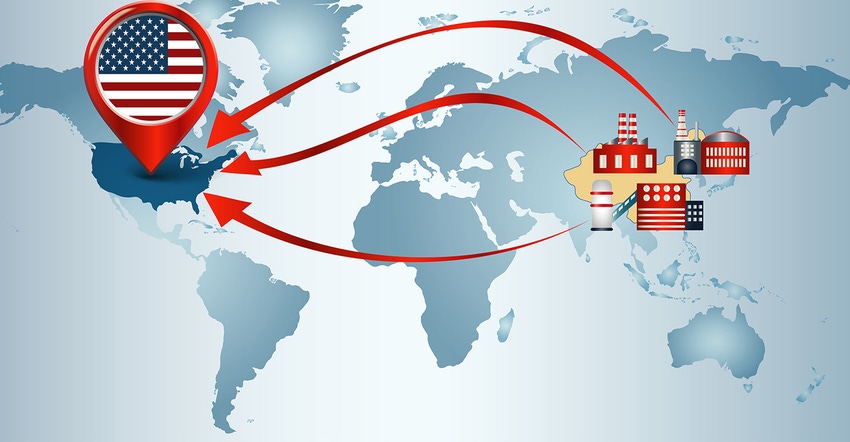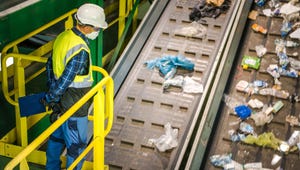“The current reshoring of manufacturing, especially in the packaging industry, has benefitted North American companies, and we think this is going to continue,” says Paul Harencak, Vice President of Business Development & Technical Services for LPS Industries.
July 6, 2021

Reshoring accelerated during the pandemic. The closure of whole cities in China disrupted manufacturing, as did the rise in companies making products in America as inventories dwindled and shipping slowed. Lesson learned: Made in the USA is the best way to ensure a reliable supply chain.
“The current reshoring of manufacturing, especially in the packaging industry, has benefitted North American companies, and we think this is going to continue both in the short and longer term,” said Paul Harencak, Vice President of Business Development & Technical Services for LPS Industries. Based in Moonachie, NJ, LPS Industries is a woman-owned, ISO 9001:2015–certified flexible packaging manufacturer and converter. The family-run business has a history of providing creative solutions for its customers for more than 60 years.
Harencak told PlasticsToday that through his plastics converting career, the one thing he’s learned about China is that it’s a “tenuous supplier.” In addition to getting the product made correctly and dealing with intellectual property issues, US manufacturers are facing shipping delays because of the scarcity of shipping containers.
“We buy offshore when we absolutely have to, and source some supplies that cannot be made here in India and Germany,” he said. “We do not outsource our process. It’s important for us to maintain control of our products’ process as much as possible.”
Will everybody reshore? “No, of course not, but I believe there is a bit of an awakening that reshoring is a way to get dependable sources of supply,” said Harencak. “There are too many factors involved today, such as market shortages in feedstock and rising prices. I’ve never seen polyethylene go up monthly like it has this year. There’s also the increased cost of freight and the shipping pallets. Additionally, many supplies are under allocation, which means we can’t order more of a certain material any time we need it. That’s why I think reshoring will become more of a trend rather than a fad.”
As a film converter, Harencak added that his company has made great strides with reusable and recyclable packaging for its customers. His town eliminated all plastic bags as of this past January, and next January 1 it will eliminate paper bags, as well. “Where does this stop?” Harencak asked rhetorically.
“I think there is room for sustainable options and we’re doing our due diligence, but cost, supply, and shelf-life stability are all huge issues. The best of all worlds is being able to pick and choose what sustainable options work for a specific application. Compostable bags are great for newspaper protection, but trying to stick a nutraceutical in a compostable bag won’t work.”
Harencak noted that there will always be a need for plastics. “Plastics don’t pollute — people pollute,” he said.
Harencak is also confident that the demand for packaging made in the USA will increase. “Flexible packaging for foods, packaging for hazardous waste, packing materials for shipping, as well as envelopes and coated productions for industrial applications have all seen heightened interest. We are confident that consumers in North America will come to realize that the benefits of quicker delivery times and better quality will continue to make reshoring sensible.”
About the Author(s)
You May Also Like




